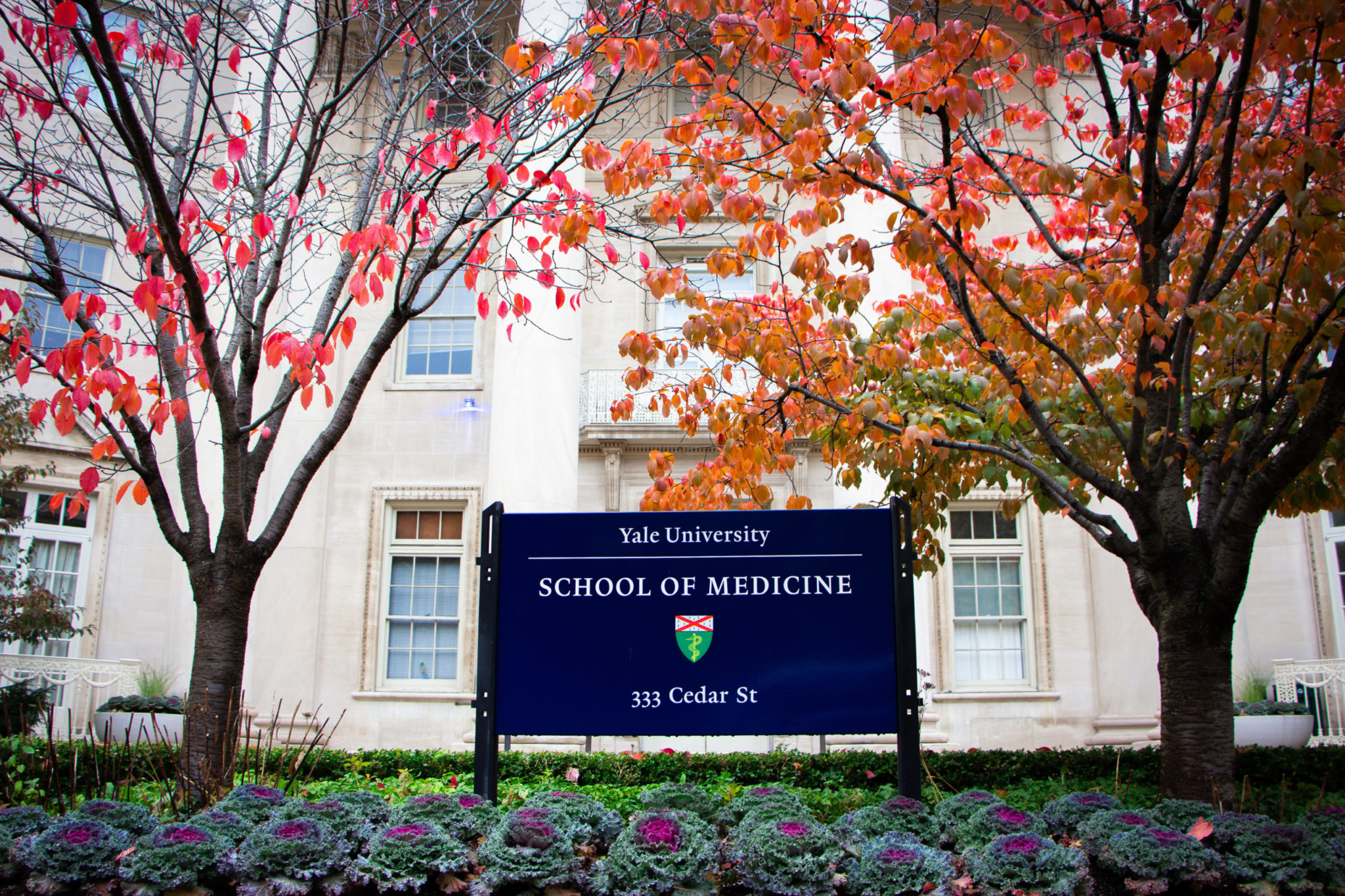Yale School of Medicine launches program to recruit recent PhD’s from minority groups
YSM’s Science Fellows Program, launching later this year, will assemble a cohort of postgraduate researchers with the aim of increasing diversity and inclusion.

Yale Daily News
A new program at the Yale School of Medicine will provide postdoctoral researchers from underrepresented groups with mentorship and training as they transition into academia.
With applications slated to open in March, the Science Fellows program plans to welcome its first cohort later this year. As many of the researchers will transition into new roles at the School of Medicine, the program intends to foster diversity among the school’s faculty. The program will initially recruit a cohort of three recent graduates from doctorate or MD/Ph.D. programs who come from groups traditionally underrepresented in scientific research, including those who identify as African-American, Hispanic or Latino, Indigenous, Pacific-Islander, LGBTQ+, disabled or as women.
“The idea is to create kind of a cohort of these fellows that will allow them to support each other,” Ifat Levy, co-director of the Science Fellows Program and vice-chair for diversity, inclusion and equity in the School of Medicine’s department of comparative medicine, told the News. “And so in order to do that, we’d like to first target exceptional scientists from very diverse backgrounds, and to give them support and mentorship and training that they need with a lot of investment and support from the School of Medicine.”
The program hopes to not only expand diversity among the school’s faculty, but within the broader medical field too. Levy hopes that the Science Fellows initiative will allow postgraduate researchers to develop into “innovative, independent scientists” who can be retained as faculty members.
According to Kristen Brennand, professor of psychiatry at the Yale School of Medicine and the other co-director of the Science Fellows program, much of the momentum for the program was rooted in dialogue about race that stemmed from Black Lives Matter and other racial justice movements. The Fellows program was developed as a response to the School of Medicine’s low recruitment and retention of researchers from underrepresented minority groups.
“That step from postdoc to faculty is really a unique challenge,” Brennand told the News. “It’s hard for all postdocs. But a lot of the systemic biases, I think they all add up intersectionallty at this particular junction, where it’s just extraordinarily hard to make that that jump from trainee to faculty.”
Aileen Fernandez, a postdoctoral fellow at the School of Medicine and co-chair of the School’s Black Postdoctoral Association, told the News that, while she had not heard of the program before its announcement last week, “it was a pleasant surprise” and she “look[s] forward to learning more about it.”
According to Levy, each Science Fellow will receive a budget from the School of Medicine for travel and training, funding for independent research and a general stipend as they narrow their research interests. The program provides workshops on writing, mentorship, diversity and leadership. Levy also aims for the program to partner Fellows with scientific mentors with similar life experiences.
Other postgraduate-to-faculty recruitment programs have been established at institutions like Harvard, Princeton and Stanford, according to Brennand. The Science Fellows program at Yale combines elements from other accelerated postgraduate tracks with an emphasis on diversity.
“I think it’s pretty novel, and kind of different from other programs,” Levy told the News. “We are aware of programs to increase diversity in other institutions as well. But what we are planning here, I think, is kind of unique and different.”
While the Science Fellows program will begin with a three-member inaugural class, the program directors hope to increase the size of the cohort in the future. Moreover, as the program grows with additional cohorts each year, the directors said, it will develop a more robust network of researchers and eventually provide alumni mentorship for new classes.
The directors also aim to engage in cluster hiring, such that each class’s interests overlap with a scientific theme, rather than the newly recruited researchers being scattered in “isolated silos” across the medical school. Levy and Brennand hope that the practice will “facilitate interactions” between the fellows and help develop a stronger sense of community.
“I think communities are always stronger for everyone involved,” Brennand told the News. “And so we’re hoping to connect these fellows with faculty, and mentors with shared life experiences, and advocates and introduce them into our community, and also strengthen the community around them so they consider staying.”
As the program hopes to eventually transition many of the post-docs to Yale faculty roles, it will include some “structured promotion process,” and the Fellows will receive support as they meet the “benchmarks” associated with transitioning to faculty positions, Levy said.
“If we mentor and nurture these individuals, and if we do a good job in selecting individuals that have good potential to transition into faculty, then what we’re getting is exceptional scientists who will remain at Yale after all the investment that we put in them,” Levy said. “[They will] enrich the scientific environment here and will add to the diversity.”
According to Levy, increasing diversity is critical in several respects. She added that more diverse scientists contribute to better science, while also making scientific environments “a better place for everybody.” But she also emphasized the importance of representation specifically for young scientists.
“[Diversity] creates role models for younger individuals and students from those underrepresented groups [as they] see that people like them can succeed and can become faculty and can become leaders,” she told the News. “And so it has a very substantial impact at the societal, personal and scientific levels.”
The Yale School of Medicine is located at 333 Cedar St.







